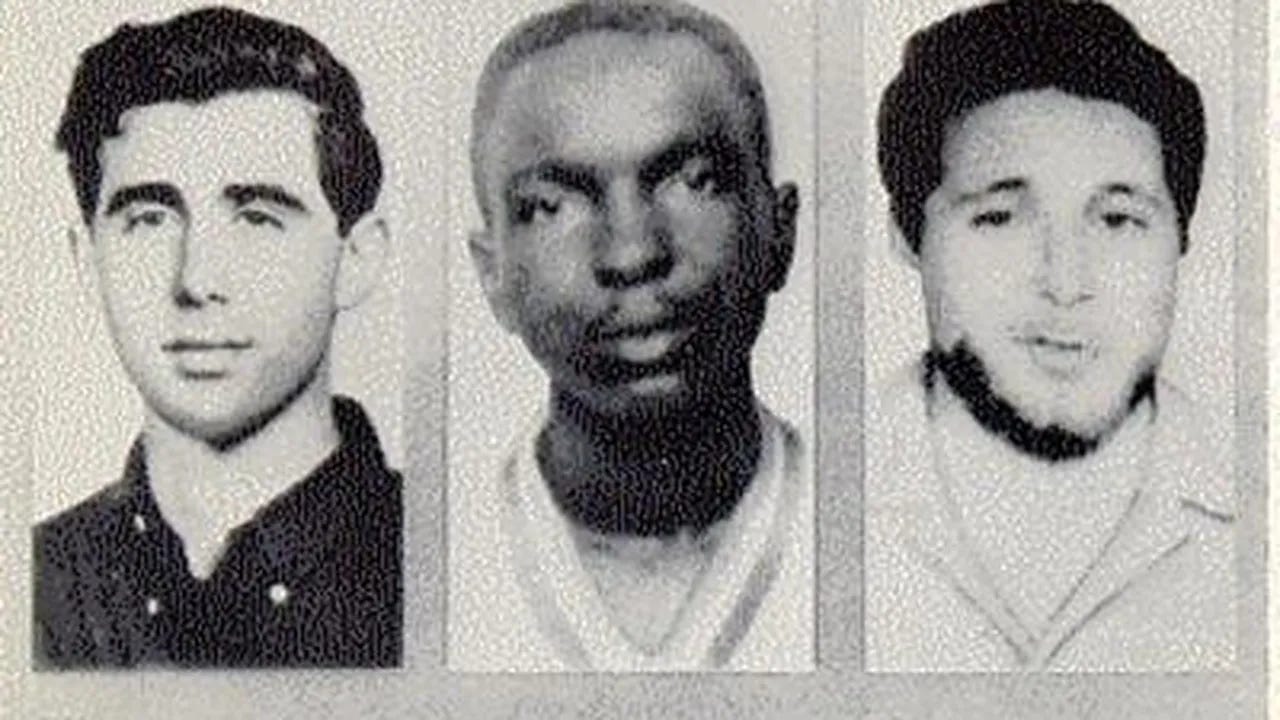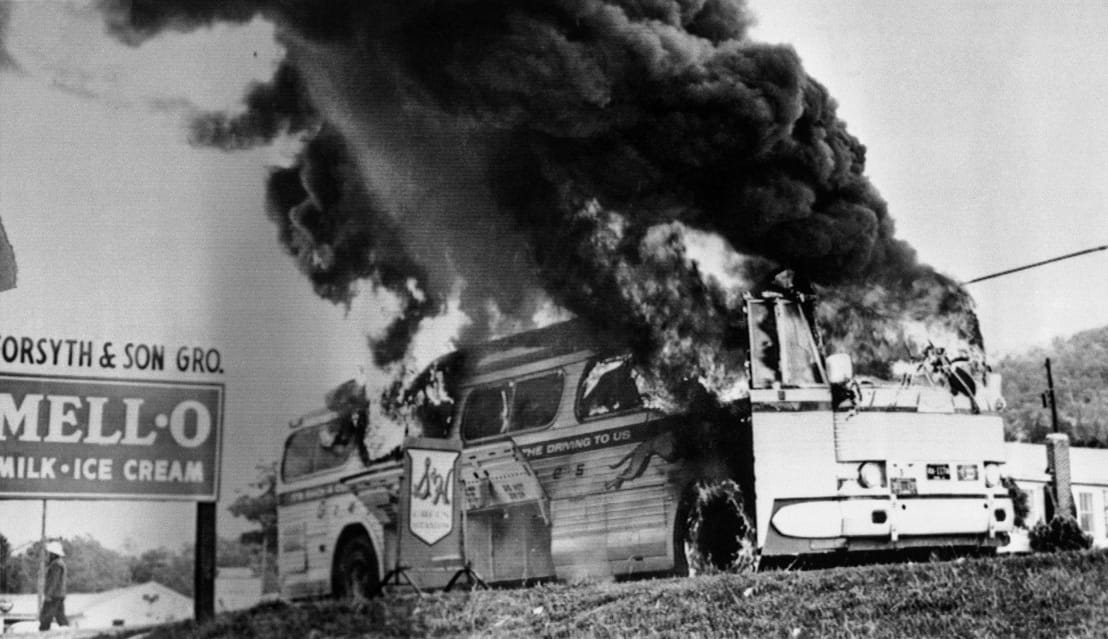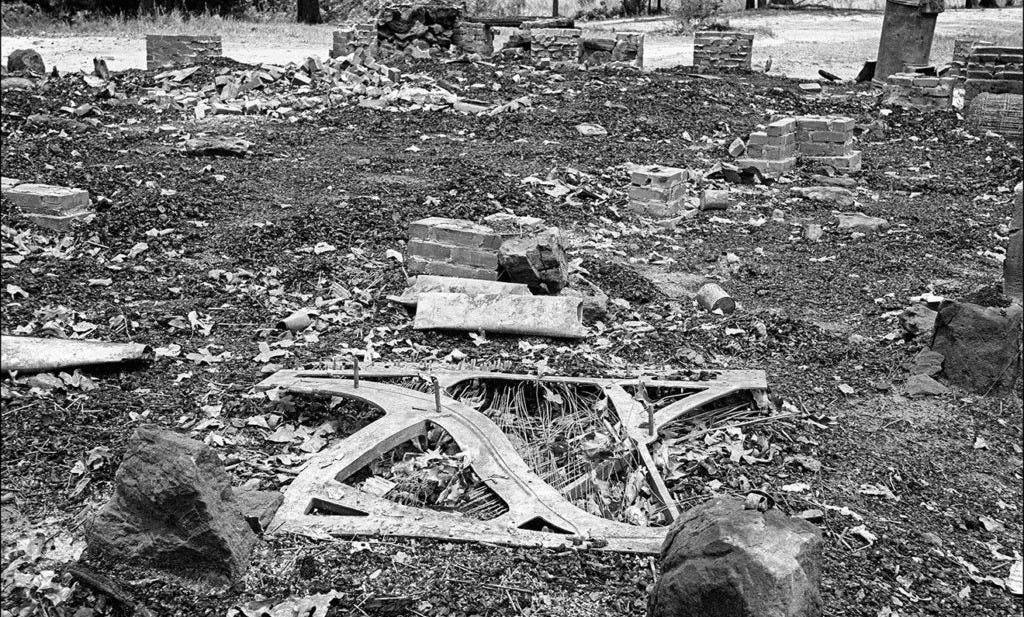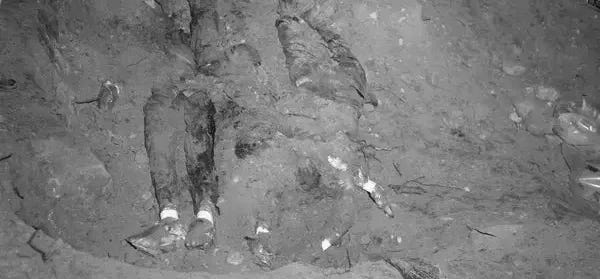If you enjoy these Black History stories and want to keep discovering more, consider becoming a subscriber today. Your support helps me share these important narratives with even more people.
On the hot summer evening of June 21, 1964, three young civil rights workers vanished off the face of the earth in Philadelphia, Mississippi. Their names were James Chaney, Andrew Goodman, and Michael Schwerner, and they'd bravely volunteered for the Freedom Summer campaign.
Their mission? Breaking down one of Jim Crow’s walls of voter suppression. But Mississippi wasn’t ready to give ground without a brutal fight.
The early 1960s in Mississippi were a battlefield, white supremacists were fiercely resisting change. Violence, threats, and murder became twisted tools of repression. Freedom Riders were beaten bloody for challenging segregated buses. In 1962, when James Meredith tried enrolling at Ole Miss, riots engulfed the campus like wildfire.
“The past is never dead. It’s not even past.” — William Faulkner
But as the summer of ’64 approached, tensions reached new heights. Northern white college students were preparing to pour into Mississippi, ready to help Black citizens register to vote. Panicked by exaggerated media reports, angry white citizens responded by swelling the ranks of the Ku Klux Klan. By summer’s start, the Klan had amassed over ten thousand members eager and ready to fight integration with blood and fire.
Amidst the growing violence, Michael Schwerner and James Chaney stood at Mount Zion Methodist Church in Longdale, boldly urging the Black congregation to register and set up a freedom school. Days later, local Klansmen burned the church to the ground, baiting the civil rights activists back into the county for revenge.
Gone Missing
Sure enough, when Schwerner alongside Chaney and Andrew Goodman, returned to Mississippi and visited the charred remains, local law enforcement was waiting. Deputy Sheriff Cecil Price arrested them on trumped-up speeding charges, locking them behind bars without the chance to call for help. Hours later, in the eerie darkness around 10 p.m., he ordered their release, sending them directly into the jaws of the waiting Klan.
The activists vanished, prompting an FBI investigation ominously called “Mississippi Burning” or “MiBurn.” Their stolen station wagon was discovered torched and abandoned in a swamp but no bodies, no explanations. Weeks passed with devastating silence about their fate. Finally, after 44 tense days, their mutilated remains were uncovered, hastily buried beneath an earthen dam on the property of a known Klan supporter.
Fight for Justice
It didn't take long for the FBI to reveal a vicious conspiracy. Local sheriff’s officers and Klansmen had conspired together, ambushing the activists on Highway 19. James Chaney, Andrew Goodman, and Michael Schwerner were executed, their bodies hidden by murderers confident their Southern justice would protect them.
Outrage erupted nationally. However, Mississippi’s state justice system refused to prosecute for murder. Instead, federal prosecutors brought conspiracy charges against 21 residents, including Deputy Cecil Price. Despite chilling confessions describing the murders in detail, the path to conviction was littered with obstacles. Judge William Harold Cox, notorious for racist language, tried to dismiss most charges, but in 1966 the Supreme Court stepped in and forced the killers back into court.
Justice Denied
In 1967, in a courtroom with no Black jurors, seven defendants faced accountability for the murders—marking the first ever conviction in Mississippi for crimes against civil rights activists. Still, justice was painfully incomplete. The jury deadlocked on Klan leader Edgar Ray Killen, allowing him and many others to walk free. The convicted men faced light sentences, serving minimal prison time—only stoking the flames of national anger and frustration.
“Justice delayed is justice denied.” — William E. Gladstone
For decades, justice seemed frozen in time. But investigative journalism reignited the case in 1998, boldly spotlighting Killen’s central involvement. The state reopened its inquiry and, in a historic 2005 trial, finally broke the silence. Edgar Ray Killen, now elderly and frail, was convicted exactly 41 years after orchestrating the murders. He spent his remaining years behind bars, dying in prison in 2018.
The Mississippi Burning murders sparked deadly important conversations about race, violence, and justice across America. These young men's tragic sacrifices pulled back the curtain on the brutality facing activists, galvanizing a nation and pushing forward landmark legislation. The Civil Rights Act of 1964 and the Voting Rights Act of 1965 brought systemic change, honoring Chaney, Goodman, and Schwerner’s courage long after they’d gone.
“It is for us the living to dedicate ourselves that these dead shall not have died in vain”
-Robert Goodman father of Andrew Goodman
What are you opinions of Mississippi Burning? We'd love to hear your thoughts and ideas in the comments!
You can learn about more about Black History at my YouTube channel and Podcast










Not much has changed after the 60's. Especially now that we see that the government legalizes unidentified ICE officers who are hunting down people, who look South American or Mexican, to send them to concentration camps.
Stories like this make me so sad because law enforcement and random white guys still have a license to kill Black men and women, see Ahmad, Trayvon, Breonna, …